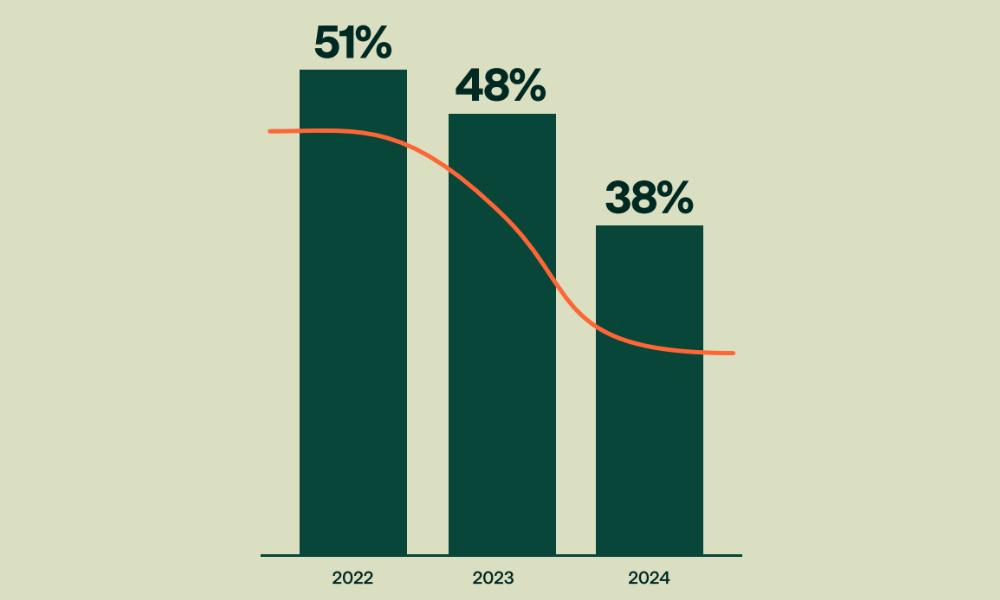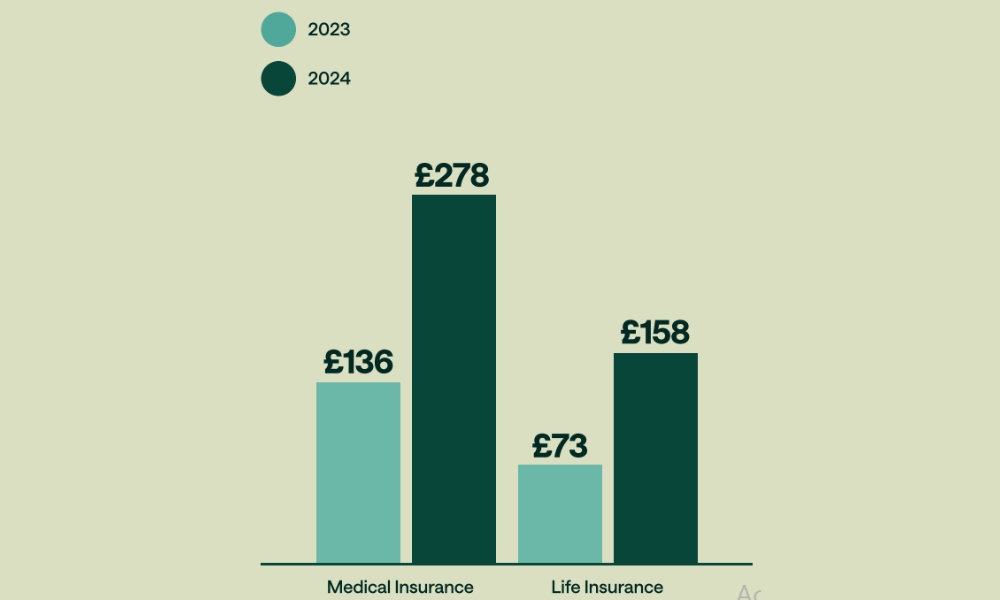'Focusing solely on reactive interventions without addressing preventative measures is a shortsighted approach'

A global report raises the question: Are employers showing less concern for workers’ wellbeing?
Employer spending on wellbeing benefits has dropped significantly, falling by 13 per cent since 2022, according to a report by Ben, a company specializing in benefits spending.
In 2024 alone, spending on these benefits declined by 10 per cent, according to the survey of more than 1,200 businesses across more than 140 countries in 2024.

Instead, it appears that employers are prioritizing foundational benefits.
Between 2023 and 2024, spending on medical insurance and life insurance more than doubled.

Rising costs are a significant factor driving this shift, says Ben.
“Premium pressures and local tax changes have driven insurance costs up by 30 per cent to 70 per cent. Employer medical care spend alone has increased by 115 per cent in 2024, despite the number of companies offering it remaining fairly consistent.
“For many companies, this is unsustainable. As a result, employers are turning their attention away from benefits that are more challenging to prove ROI from, in favour of more tangible benefits. They have been forced to rethink coverage, focus on high-impact policies, and better communicate their existing benefits.”
Short-term solution to health costs
While these strategies may help in the short term, they are not a long-term solution, according to the report.
“Focusing solely on reactive interventions without addressing preventative measures is a shortsighted approach that risks perpetuating the cycle of rising costs and declining health outcomes,” says Carl Chapman, VP for Benefit Design & Partnerships at Ben.
“Prevention should be a cornerstone of any effective benefits strategy. Companies need to explore no-cost or low-cost solutions that address the root causes of ill health before they escalate into costly medical issues.”
Life satisfaction among Canadians has been declining over the past few years, according to a previous report from Statistics Canada (StatCan).
Employee engagement top benefits priority
When it comes to benefits overall, 63 per cent of companies reported that employee engagement was their top benefits priority in 2024.
However, 51 per cent of employers said employee appreciation of their benefits offering was “average,” while 21 per cent rated it as low.
Possible reasons for this include: only 17 per cent of organizations have a cohesive global benefits strategy, and 49 per cent do not offer flexible benefit choices, despite growing demand for more personalized options.
“As businesses increasingly operate across borders, the complexities of global benefits management have moved to the forefront. The rise in globally dispersed workforces is more than a statistic; it's a signal of the challenges HR teams face daily,” says Chapman.
Just 1 in 20 Canadian workers access employer-provided benefits for wellbeing, according to an earlier report from RBC Insurance.
“This is an exciting time for benefits as companies refocus on what truly matters. In the face of economic uncertainty and tight labour markets, forward-thinking organizations are navigating the complexity of global benefits by harmonizing and streamlining programs,” says Sebastian Fallert, CEO at Ben.




